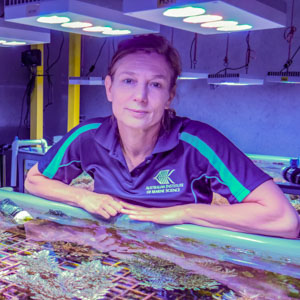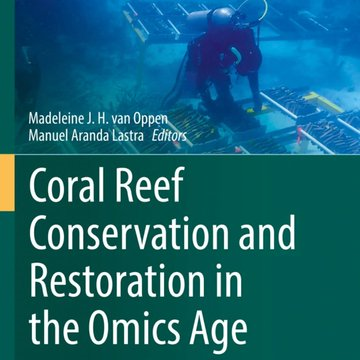A new volume now published in the Coral Reefs of the World series explains how omics approaches are helping with the development of innovative methods in coral reef restoration and conservation.
Omics is a field of study in biological sciences that measures biomolecules in a high throughput manner. This includes genomic, transcriptomic, epigenomic or metabolomic approaches. Omics data can be applied by marine scientists to support and/or develop restoration methods that help reefs adapt to and recover from the effects of climate change.
The new volume, Coral Reef Conservation and Restoration in the Omics Age, is edited by AIMS Professor Madeleine van Oppen and Professor Manual Aranda from the King Abdullah University of Science and Technology and is authored by leading scientists, to showcase the latest knowledge on omics approaches of our world's coral reefs.

The book discusses how:
- Genomic and environmental DNA (eDNA) data can be used to inform marine protected area design.
- Adaptive genetic and epigenetic variation knowledge can be used to maximise environmental stress tolerance of coral stock.
- Microbial symbiont omics data can be used to guide restoration strategies, and more.
Professor van Oppen said, "This volume provides a unique overview of the coral conservation omics field. I hope it will become an important reference tool for students, coral reef managers and researchers."
AIMS' Dr Line Bay and Dr Matthew Nitschke are two authors who also contributed chapters to the volume.







